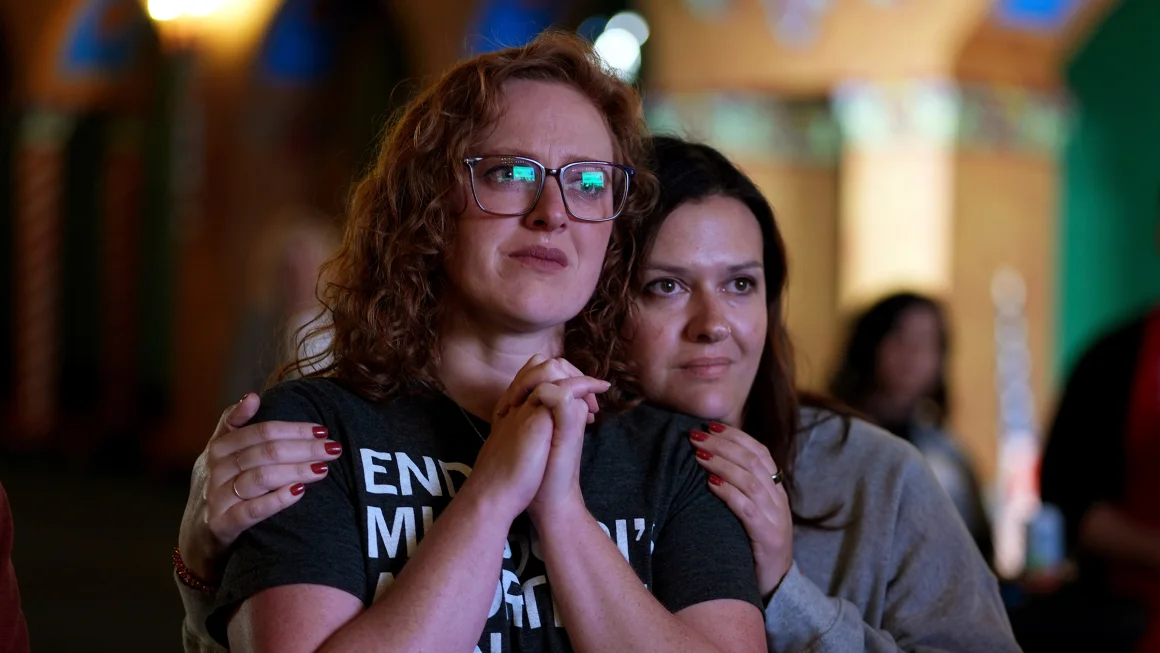By Charalampos Karouzos,
The 2024 U.S. election, beyond its global economic and political significance and influence worldwide, will serve, in addition, as a critical turning point for health and in particular women’s health policy. It holds the potential to bring the U.S. closer in alignment with other developed nations, championing equitable healthcare access, or to further destabilize an already fragile balance, the outcome of which will not only impact the rights and health of women today, but will also shape the lives of future generations. The country as Blumenthal, Gumas and Shah recently showed in their recent study published in the NEJM, ranks last overall, compared to other 10-high-income countries in terms of healthcare performance, while simultaneously incomparably exceeds the healthcare expenditures compared to the other countries. US citizens will be addressing these distressing issues as they cast their votes in November 5th, the day that this article was finalised before the final electoral results have been published.
Historically, women’s health rights have been a pivotal political issue in the U.S., a reality that unfortunately persists today, further indeed inflated by the recent Supreme Court decision overturning Roe v. Wade, which highlights just how vulnerable these rights can be. For decades, Roe v. Wade provided a constitutional safeguard for reproductive rights, empowering women with the autonomy to make decisions about their own bodies. The decision to overturn this precedent not only impacts access to safe and legal abortion, but also underscores the precariousness of women’s rights more broadly.
The divided political landscape on reproductive rights is stark, often exceeding the country’s borders and recently a flashpoint in both domestic and international politics with the discussions raised by Canadian PM Justin Trudeau. During his speech at the House of Commons, he addressed a message to his daughter who was seated in the gallery, stating clearly that “this government is unequivocally pro-choice. We will always defend a woman’s right to choose”. Yet, even with Canada’s more progressive stance, the influence of U.S. politics can be felt, as Canadian policymakers increasingly see the need to shield their own health policies from conservative pressures emanating from the U.S. political landscape.

Within the United States and in other countries as well, especially those where religion is a key societal factor, the debate is often framed as a moral issue, failing to acknowledge that, at their core, reproductive rights are a matter of healthcare access. Restricting access to safe and legal abortions doesn’t eliminate the demand; it simply forces women to seek dangerous, unregulated procedures, or if they have the financial means, seek access to healthcare abroad. Health professionals worldwide have long emphasized that limiting healthcare options, including reproductive services, endangers lives primarily and disproportionately affecting marginalized vulnerable women.
The absence of explicit constitutional protections for women’s rights leaves them defenseless to ideological shifts in politics, as seen in Trump’s recent presidency. In fact, advocates from Equality Now note that a lack of federal protection opens a novel pandora box for discriminatory laws and policies that disproportionately impact women, especially those from marginalized backgrounds. The challenge extends beyond reproductive rights, affecting access to a broad range of health services including prenatal care, contraception, and preventive health services. Furthermore, advocates argue for the adoption of an Equal Rights Amendment (ERA) to enshrine gender equality in the Constitution, a measure that would add a robust layer of protection for women’s health rights, ensuring that basic healthcare decisions aren’t subject to the whims of changing political tides.
Unfortunately, even in 2024, it remains necessary to highlight that healthcare policies should be guided exclusively by evidence-based practices, not ideology, as failing to do so risks undermining both individual health outcomes and public health at large. Certain political believers have consistently attempted to limit the rights of patients’ autonomy and well-being, framing restrictions on abortion and reproductive healthcare as protections of life. Ironically, these restrictions often jeopardize lives rather than protect them, supported by data showing that limiting abortion access disproportionately affects low-income women and women of color. Such policies create a two-tiered healthcare system where some women can exercise their right to choose, while others cannot, solely based on socioeconomic factors.

The right to choose is not just about reproductive health; it’s about bodily autonomy, equality, and the right to make personal decisions free from political interference, it shouldn’t be seen as a privilege but an established fundamental right. The U.S. has long been self-identified and vocal about championing freedom and democracy on the global stage and yet fails to secure basic human rights for its own citizens. Indeed, women’s health advocates argue that the nation cannot truly claim to support gender equality if it continues to allow states to restrict fundamental healthcare rights. A recent example of great importance being the announcement by former president Trump that the United States would withdraw from the WHO, which was not finalized before Trump’s term ended. Does freedom and democracy even refer to people’s rights or can it solely be seen in the economic and business world?
Supporting the right to choose is not about advocating for one lifestyle or set of beliefs over another; it’s about trusting individuals to make the best decisions for themselves and their families. The ideological drive to control women’s reproductive choices is at odds with the principles of patient-centered care and respect for personal autonomy. Women in this case, but more generally any person, should not have to be forced to justify their healthcare decisions to politicians who often lack medical expertise or understanding of individual circumstances.
The upcoming election offers a vital chance for U.S. citizens to show their support for policies that uphold women’s rights to make choices about their own health. Voting for a candidate who champions healthcare access, reproductive rights, and gender equality is a vote for a society that respects and trusts its citizens —principles that go beyond mere ideology and trends, laying the groundwork for a fair and just society.
The new President of the United States, whoever the people elect, must govern with the understanding that healthcare is a right, not a privilege that can be granted or denied for political gain. Protecting the right to choose is essential to preserving individual health, freedom, and dignity —a matter of health and human rights that warrants absolute protection.
References
- Declaration of Alma-Ata. International Conference on Primary Health Care, Alma-Ata, USSR, 6-12.
- Abortion Rights Issue Surfaces in CanadaBefore U.S. Election. The New York Times. Available here
- Why Gender May Be the Defining Issue of the Election. The New York Times. Available here
- Thousands of women rally nationwide for abortion rights and feminist causes. The Guardian. Available here
- Why Women’s Rights Are Vulnerable in America. Equality Now. Available here
- Harris turns her attention to women’s rights after Trump’s latest ‘offensive’ protector language. Le Monde. Available here
- David Blumenthal, Evan Gumas, and Arnav Shah. “The Failing U.S. Health System”. The New England Journal of Medicine.




